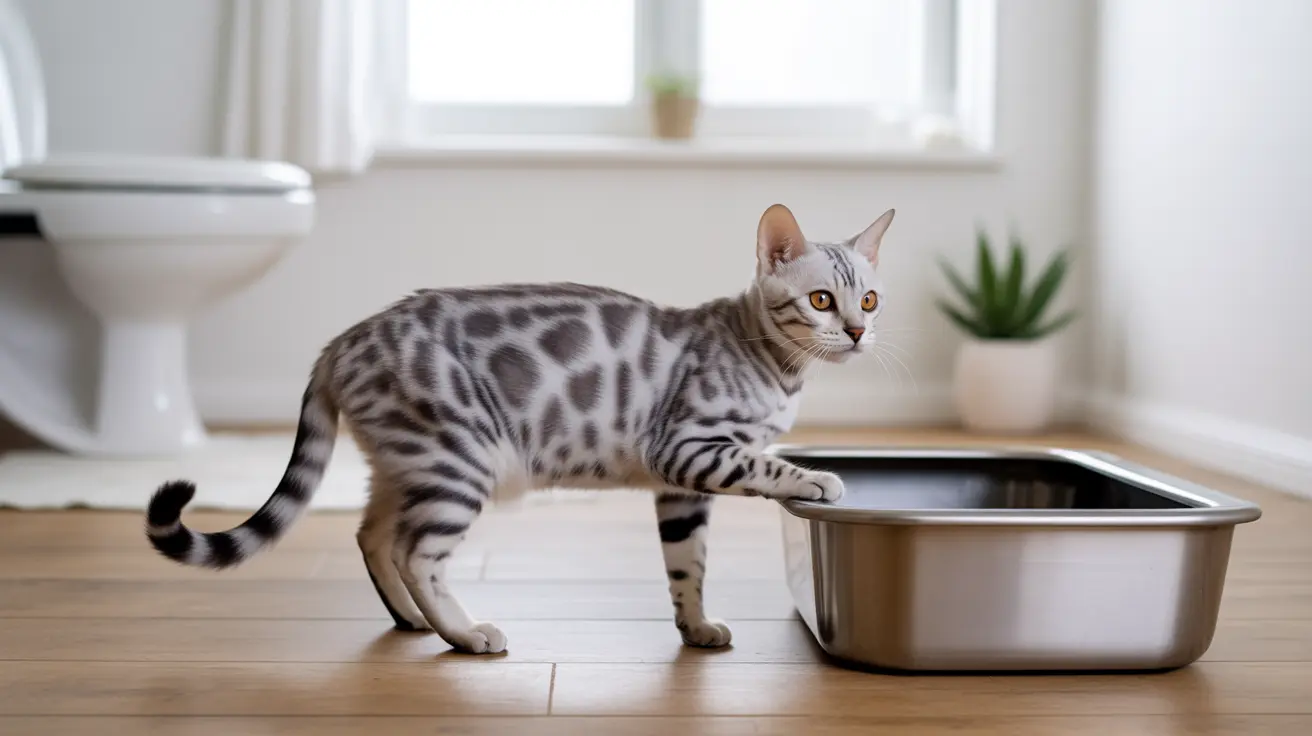Normal Urination Patterns in Healthy Cats
Most healthy adult cats typically urinate between two to four times per day. This frequency depends largely on their water intake, diet type, and overall health condition. Cats consuming wet food or those who drink plenty of water will naturally urinate more frequently than those on a primarily dry food diet.
While cats can physically hold their urine for up to 24-48 hours, veterinarians strongly advise against letting them go longer than 12-24 hours without urinating. Longer intervals can indicate underlying health issues or lead to dangerous complications.
Factors That Affect Your Cat's Urination Frequency
Age and Development
Kittens and senior cats generally need to urinate more frequently than healthy adult cats. Kittens may need to go every 2-3 hours, while elderly cats might experience reduced bladder control due to age-related conditions.
Diet and Hydration
The type of food your cat eats significantly impacts their urination frequency:
- Wet food diets typically lead to more frequent urination
- Dry food may result in less frequent urination
- Proper hydration is essential for healthy urinary function
Medical Conditions
Several health issues can affect how long cats can hold their pee:
- Urinary tract infections (UTIs)
- Kidney disease
- Diabetes
- Bladder stones
- Feline lower urinary tract disease (FLUTD)
Warning Signs Your Cat Can't Hold Their Pee
Watch for these critical signs that may indicate urinary problems:
- Frequent trips to the litter box with little or no output
- Crying or straining while attempting to urinate
- Urinating outside the litter box
- Blood in the urine
- Excessive grooming of the genital area
Prevention and Best Practices
To maintain healthy urination patterns:
- Keep litter boxes clean and easily accessible
- Provide fresh water daily
- Consider adding wet food to their diet
- Monitor litter box habits regularly
- Schedule regular veterinary check-ups
When to Seek Emergency Care
If your cat hasn't urinated for more than 12 hours or shows signs of straining, seek immediate veterinary attention. Male cats are particularly susceptible to urinary blockages, which can become life-threatening within 24-48 hours if left untreated.
Frequently Asked Questions
How long can a healthy cat safely hold their pee before it becomes dangerous?
While cats can physically hold their urine for 24-48 hours, veterinarians recommend not letting them go longer than 12-24 hours without urinating. Beyond this timeframe, serious health complications can develop.
What factors influence how often my cat needs to urinate during the day?
Key factors include age, diet type (wet vs. dry food), water intake, overall health, medications, and environmental stressors. Healthy adult cats typically urinate 2-4 times daily.
How can I tell if my cat is having urinary problems or holding their pee too long?
Watch for signs such as frequent litter box visits without production, straining, crying while attempting to urinate, urinating outside the box, or showing signs of abdominal pain.
What should I do if my cat hasn't peed in over 12 hours or is straining to urinate?
Seek immediate veterinary care, as this could indicate a potentially life-threatening urinary blockage, especially in male cats.
How does diet and hydration affect my cat's urination frequency and bladder health?
Cats on wet food diets typically urinate more frequently due to higher moisture content. Proper hydration helps prevent urinary crystals and maintains healthy kidney function. Insufficient water intake can lead to concentrated urine and increased risk of urinary problems.






